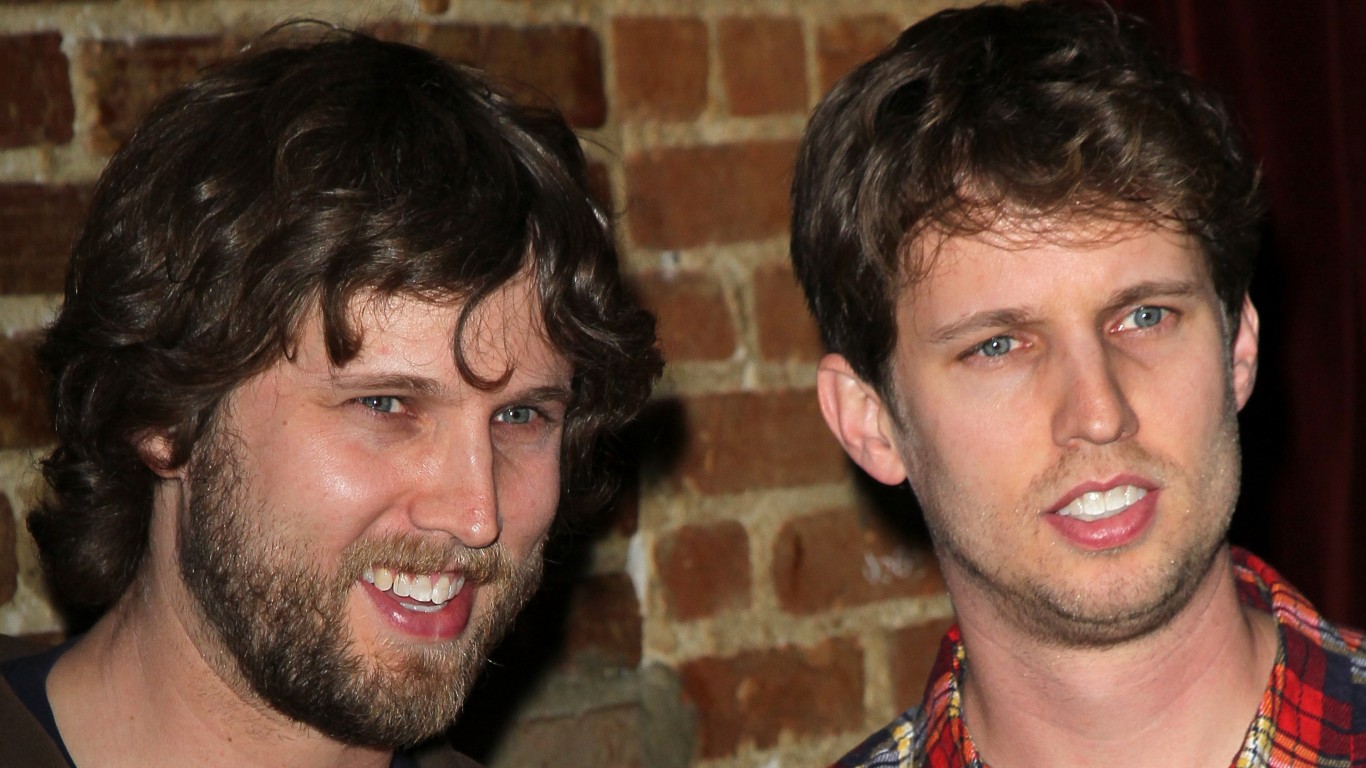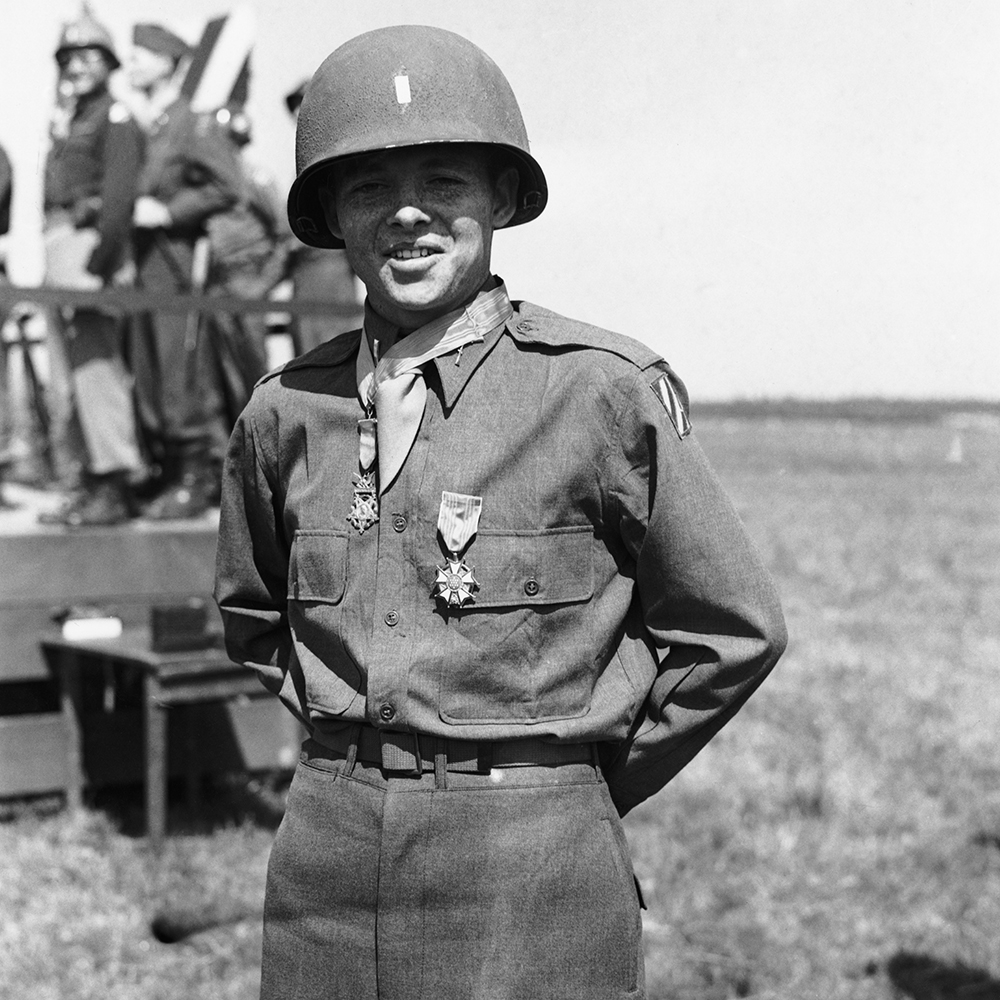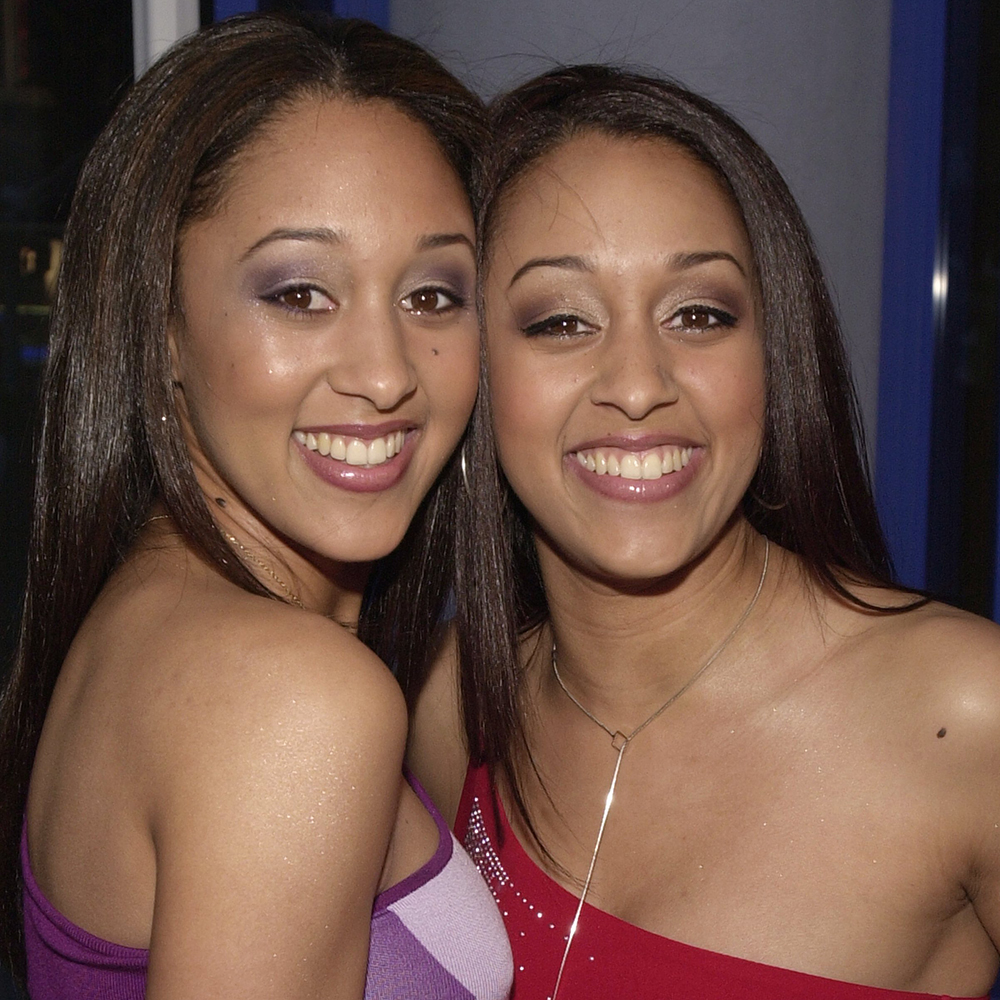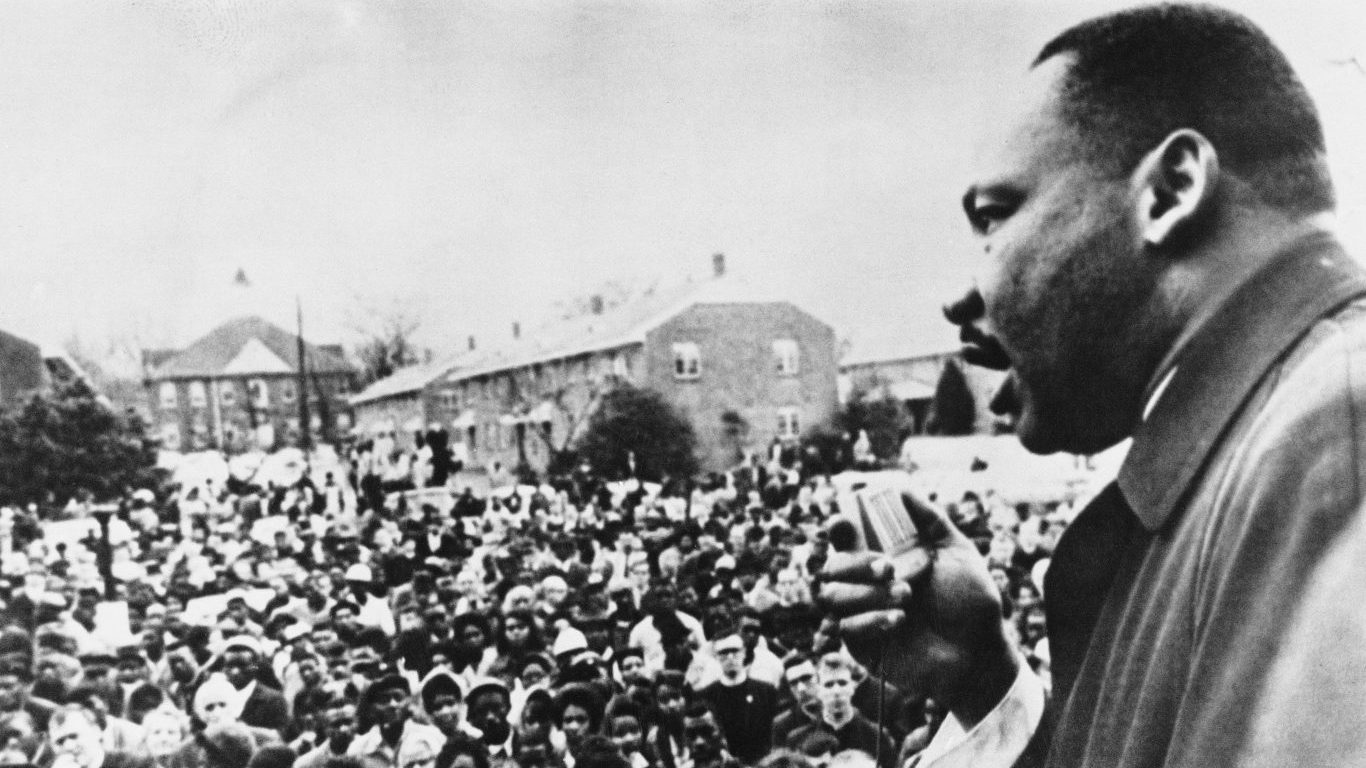

Speeches addressing civil rights issues are among the most famous and inspiring in American history.
From Martin Luther King Jr.’s immortal “I have a dream” speech to President Barack Obama’s historic inaugural address as the nation’s first African-American president, speeches with a civil rights theme rightfully take their place alongside the soaring oratory of President Abraham Lincoln’s Gettysburg Address and President John F. Kennedy’s inaugural address.
The content of civil rights speeches can be aspirational, instructive, or even incendiary, and they provide a window into the thoughts and hopes of millions of those yearning for their share of the American dream. The civil rights movement of the 20th century mainly fought for equality for African Americans — and these are the most important civil rights leaders of the last century.
As we mark Martin Luther King Day Jr., 24/7 Tempo has compiled a list of some the most important civil rights speeches in American history.
In order to compile the list, 24/7 Tempo reviewed source material from the Library of Congress, the African American Museum, online sites such as blackpast.org and americanradioworks.publicradio.org, and the online libraries of former presidents. In compiling this list, we considered the historical significance of the speech, if it represented a departure or shift in tone or direction for the speaker, its effectiveness in bringing about change, and if the speech stands the test of time.
Click here to see the list of the most important civil rights speeches in American history
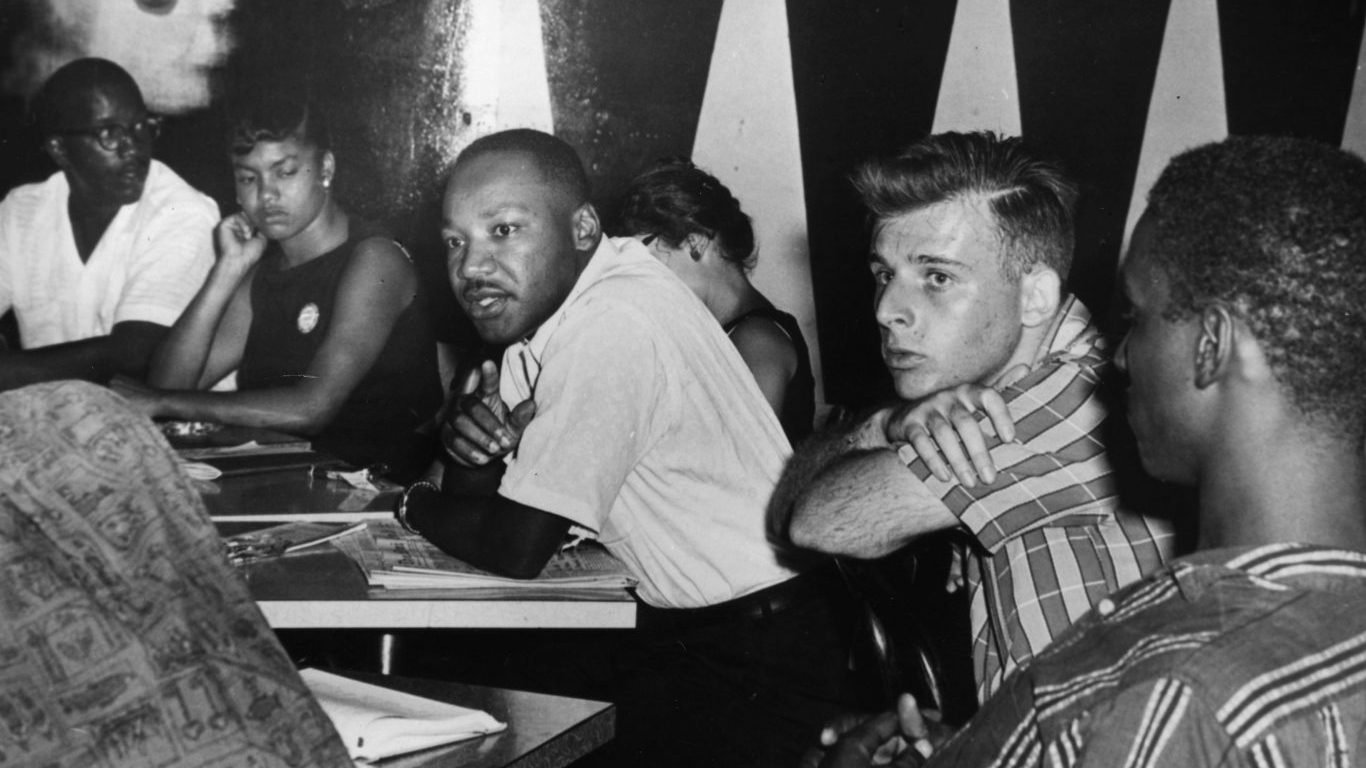
Martin Luther King Jr.: ‘The Montgomery bus boycott’ speech
> Occupation: Civil rights leader
> Place: Montgomery, Alabama
> Date: Dec. 5, 1955
Four days after Rosa Parks was arrested for refusing to give up her seat on a bus in Montgomery, Alabama, to a white passenger, Martin Luther King Jr. stepped to the forefront of the civil rights movement. In a baptist church in Montgomery, on Dec. 5, 1955, he addressed a crowd of about 5,000 that had just voted to boycott the buses.
“You have voted [for this boycott], and you have done it with a great deal of enthusiasm, and I want to express my appreciation to you, on behalf of everybody here. Now let us go out to stick together and stay with this thing until the end. Now it means sacrificing, yes, it means sacrificing at points. But there are some things that we’ve got to learn to sacrifice for.”
[in-text-ad]
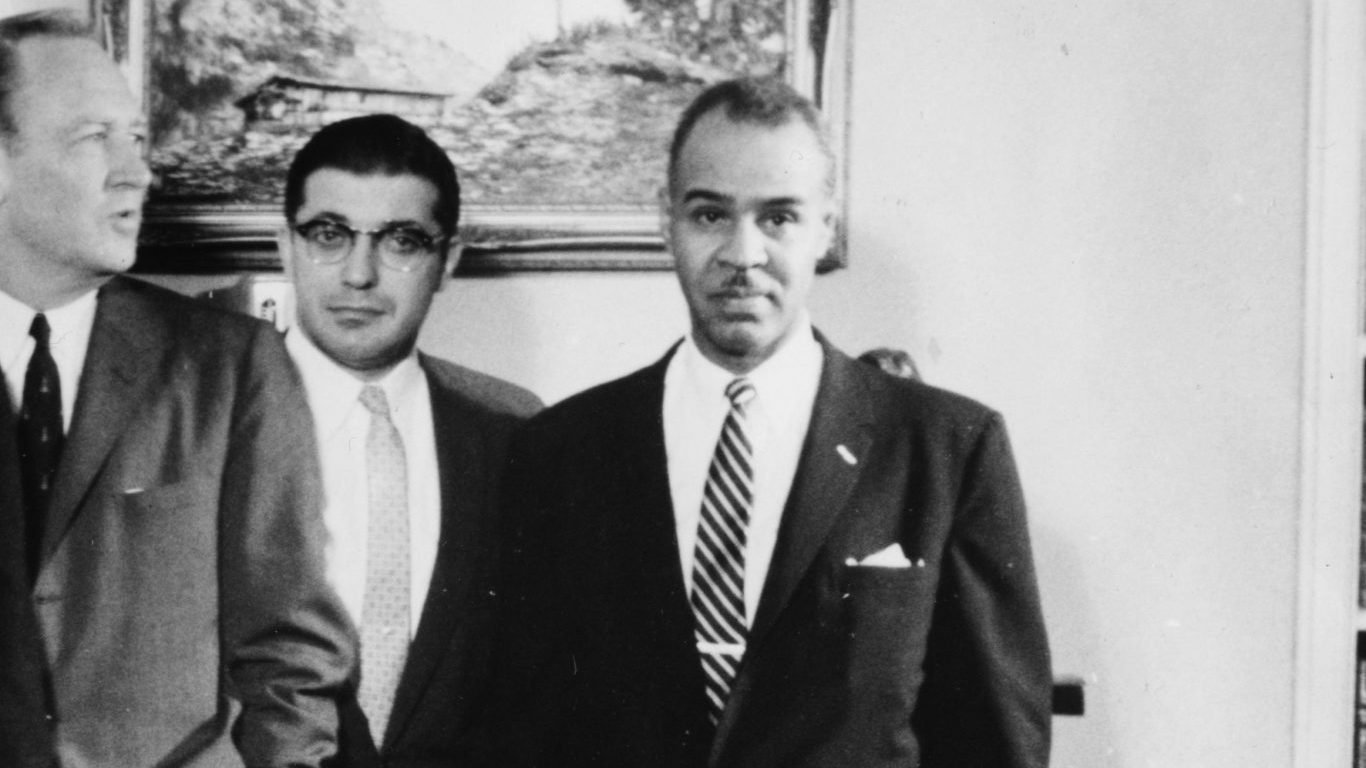
Roy Wilkins: ‘The clock will not be turned back’
> Occupation: Civil rights leader
> Place: California
> Date: October 1957
Next to Martin Luther King Jr., Roy Wilkins, head of the NAACP in 1957, was the most recognizable figure in the civil rights movement. In October, he addressed the Commonwealth Club of California five weeks after people in Little Rock, Arkansas, tried to prevent nine black students from attending Central High School.
“The world cannot understand nor long respect a nation in which a governor calls out troops to bar little children from school in defiance of the Supreme Court of the land, a nation in which mobs beat and kick and stone and spit upon those who happen not to be white. It asks: ‘Is this the vaunted democracy? Is this freedom, human dignity and equality of opportunity? Is this fair play? Is this better than Communism?’ No, the assertion that Little Rock has damaged America abroad does not call for sneers. Our national security might well hang in the balance. […] The Negro citizens of our common country, a country they have sweated to build and died to defend, are determined that the verdict at Appomattox will not be renounced, that the clock will not be turned back, that they shall enjoy what is’ justly theirs….”
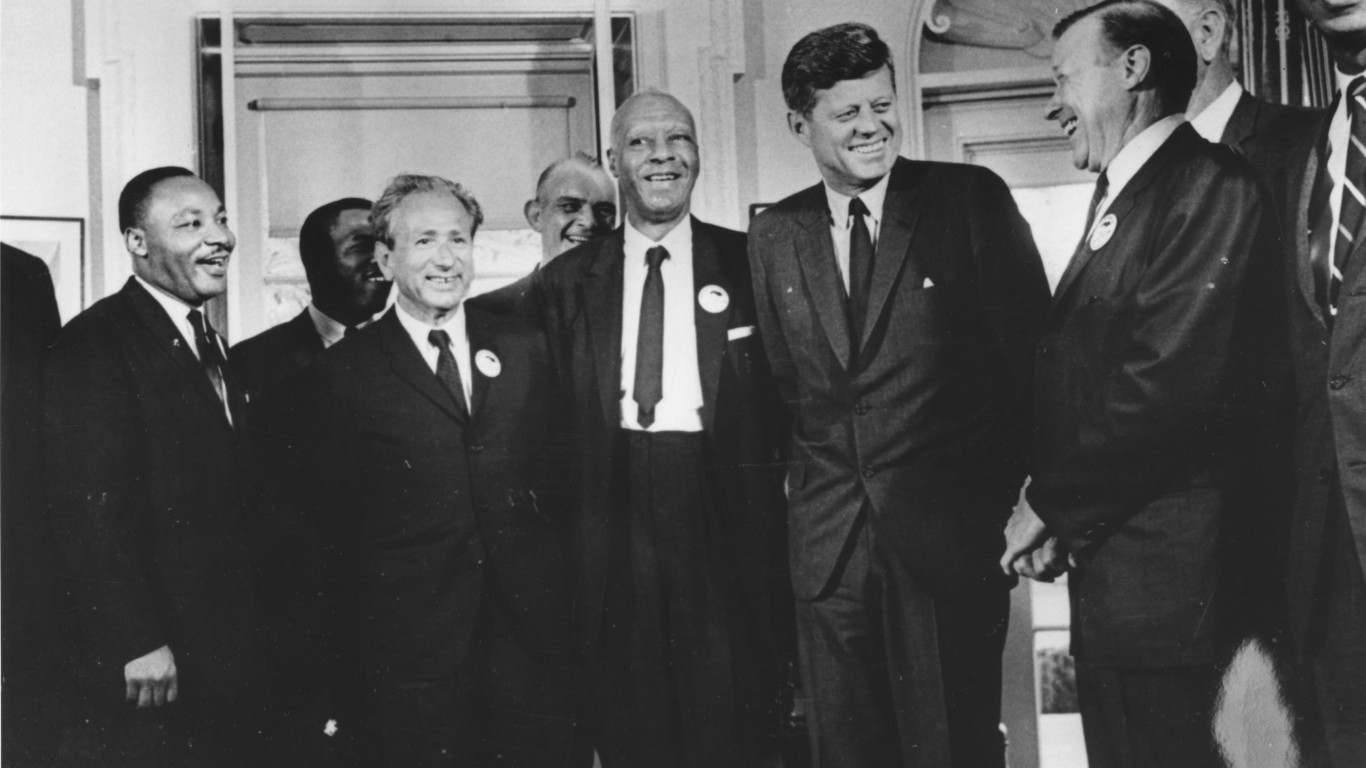
John F. Kennedy: ‘Civil rights address’
> Occupation: President
> Place: Washington, D.C.
> Date: June 11, 1963
By the time John F. Kennedy became president in 1961, the civil rights movement had gained considerable momentum. In a televised speech on June 11, 1963, he announced that he would be sending civil rights legislation to Congress.
“The heart of the question is — whether all Americans are to be afforded equal rights and equal opportunities. Whether we are going to treat our fellow Americans as we want to be treated. If an American, because his skin is dark, cannot eat lunch in a restaurant open to the public, if he cannot send his children to the best public school available, if he cannot vote for the public officials who represent him, if, in short, he cannot enjoy the full and free life which all of us want, then who among us would be content to have the color of his skin changed and stand in his place? Who among us would then be content with the counsels of patience and delay?”
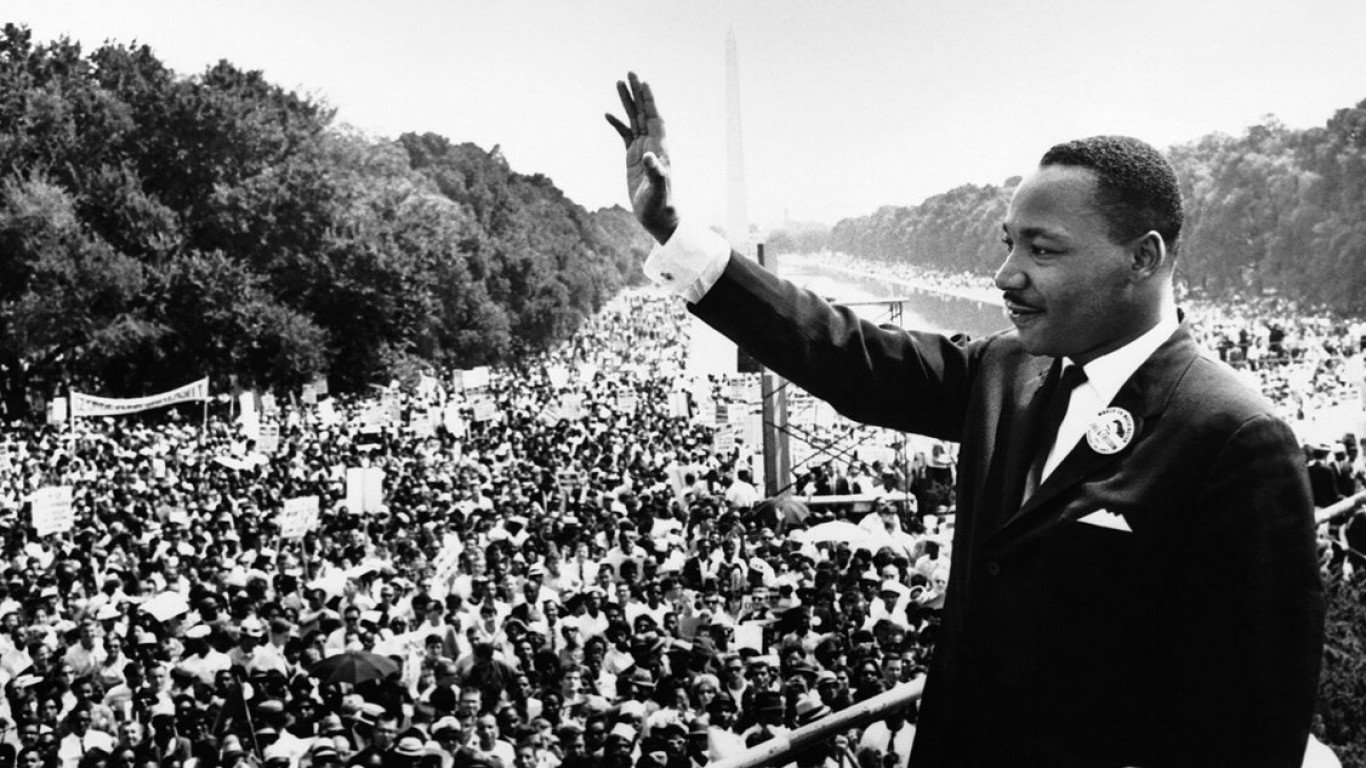
Martin Luther King Jr.: ‘I have a dream’
> Occupation: Civil rights leader
> Place: Washington, D.C.
> Date: Aug. 28, 1963
King’s “I Have A Dream” speech galvanized the civil rights movement and was instrumental in changing the course of American domestic politics. Before 250,000 people at the March on Washington on Aug. 23, 1963, King called the nation to account for its failed obligation to its African-American citizens. King was unsparing in his recitation of the depredations against African Americans, but he was not bitter and urged them not to despair. The speech displays all of King’s masterful oratorial skills. He reproaches the nation for giving “the Negro people a bad check, a check which has come back marked ”insufficient funds,'” and is resolute in urging African-Americans to emerge from the “dark and desolate valley of segregation to the sunlit path of racial justice.”
[in-text-ad-2]
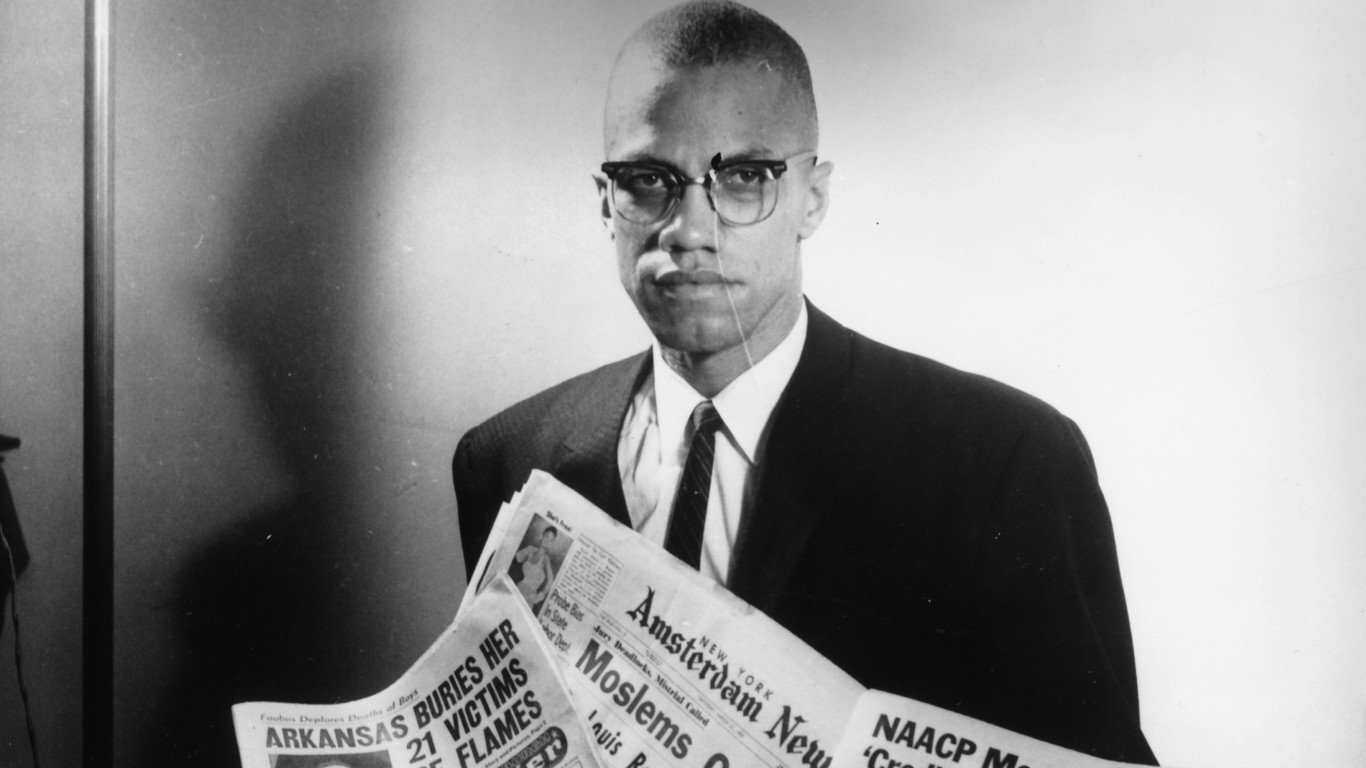
Malcolm X: ‘The ballot or the bullet’
> Occupation: Civil rights activist
> Place: Detroit, Michigan
> Date: Apr. 12, 1964
By the early 1960s, a more confrontational approach to civil rights emerged, exemplified by the speeches and public comments of Malcolm X. During a speech at King Solomon Baptist Church in Detroit in 1964, the fiery orator chided the “March on Washington,” calling the participants “chumps,” and said America was a colonial empire.
“Why does it look like it might be the year of the ballot or the bullet? Because Negroes have listened to the trickery and the lies and the false promises of the white man now for too long, and they’re fed up. They’ve become disenchanted. They’ve become disillusioned. They’ve become dissatisfied. And all of this has built up frustrations in the black community that makes the black community throughout America today more explosive than all of the atomic bombs the Russians can ever invent. Whenever you got a racial powder keg sitting in your lap, you’re in more trouble than if you had an atomic powder keg sitting in your lap. When a racial powder keg goes off, it doesn’t care who it knocks out the way. Understand this, it’s dangerous.”
Robert P. Moses: ‘Speech on Freedom Summer at Stanford University’
> Occupation: Civil rights organizer
> Place: Palo Alto, California
> Date: April 24, 1964
Robert P. Moses, a low-key civil rights organizer, gave a speech in which he was looking ahead to the summer and a voter registration drive in Mississippi.
“Camus poses it on a historical scale, in terms of whether people shall be victims or executioners. Whether those people who are enslaved, in order to get their freedom, have to become executioners and participate in acts of terror and death, and in what sense they do participate in it. And it takes place on a very small scale down South, in terms of that kind of activity which we carry on. And perhaps one justification is that you are no less exposed than they are. So that at least you share that kind of exposure with them.”
[in-text-ad]
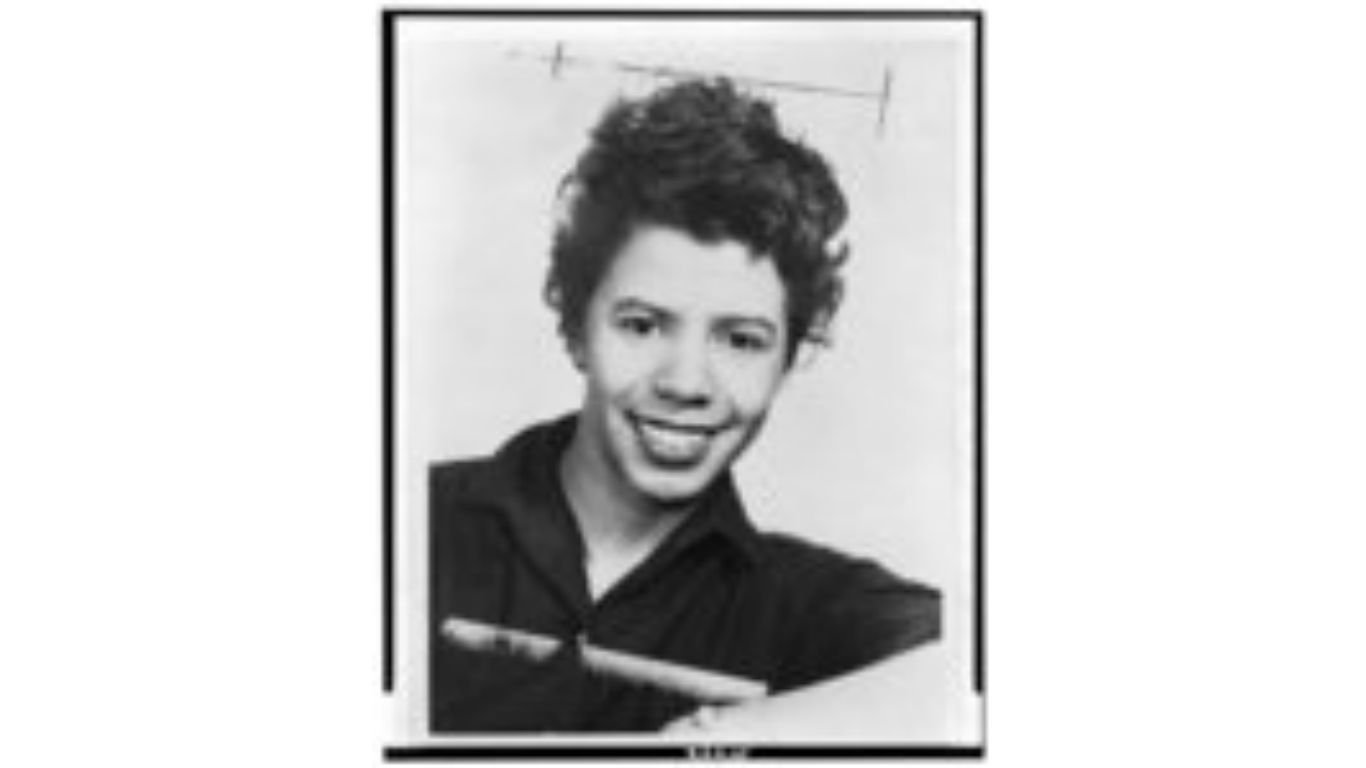
Lorraine Hansberry: ‘The black revolution and the white backlash’
> Occupation: Civil rights activist/playwright
> Place: New York City
> Date: June 15, 1964
Playwright Lorraine Hansberry, the first African-American woman to have a show, “A Raisin in the Sun,” produced on Broadway, took a more assertive approach to the civil rights movement at a speech she gave in New York City in 1964. Her father had tried to fight segregation through legal means and was not successful, influencing her call for action.
“It isn’t a question of patriotism and loyalty. My brother fought for this country, my grandfather before that and so on and that’s all a lot of nonsense when we criticize. The point is that we have a different viewpoint because, you know, we’ve been kicked in the face so often and the vantage point of Negroes is entirely different and these are some of the things we’re trying to say.”
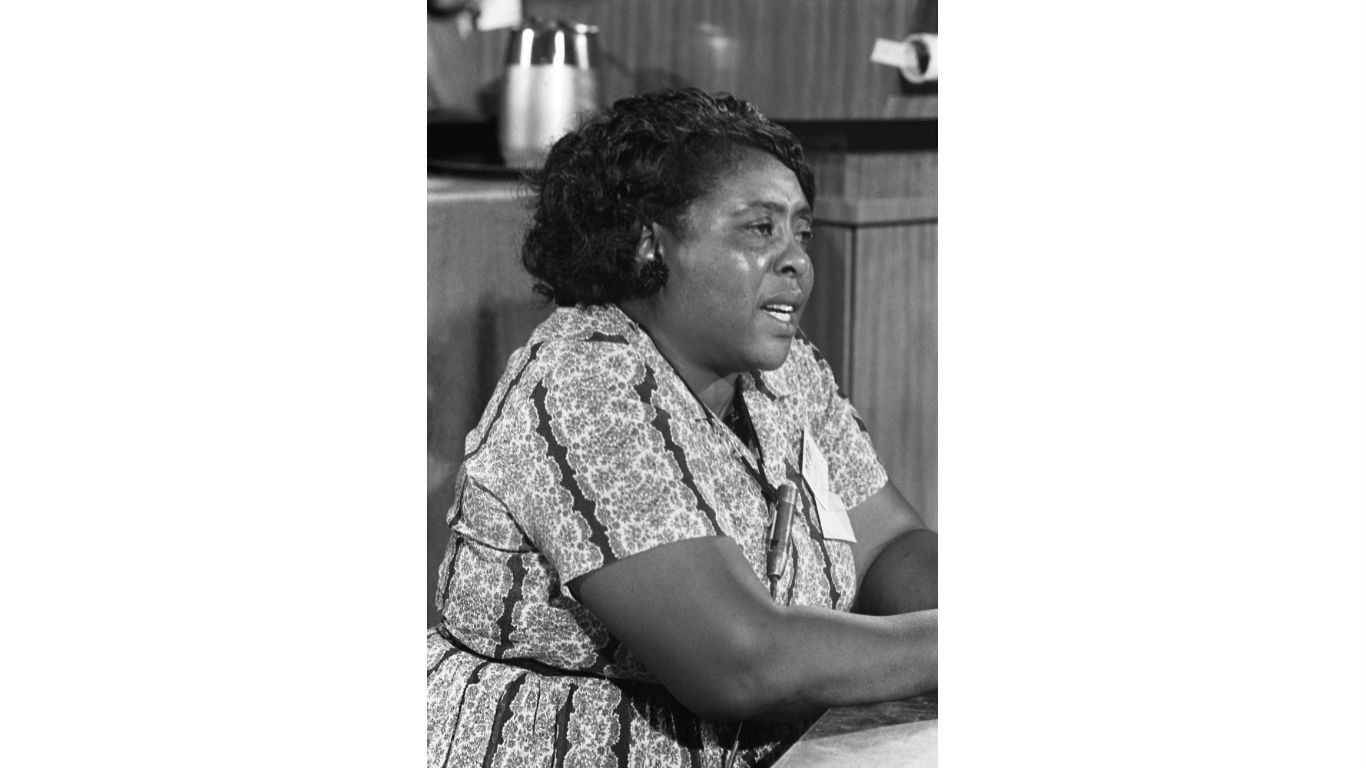
Fannie Lou Hamer: Credentials committee testimony
> Occupation: Civil rights activist/philanthropist
> Place: Atlantic City, New Jersey
> Date: Aug. 22, 1964
Fannie Lou Hamer was a determined fighter for voting rights. In 1964, she was a member of the Mississippi Freedom Democratic Party, which sought to be seated at the Democratic Party Convention in Atlantic City. She appeared before the convention’s credentials committee and told her harrowing story about trying to register to vote in Mississippi. Her story was eventually broadcast over the major television networks.
“All of this is on account of we want to register, to become first-class citizens. And if the Freedom Democratic Party is not seated now, I question America. Is this America, the land of the free and the home of the brave, where we have to sleep with our telephones off the hooks because our lives be threatened daily, because we want to live as decent human beings, in America?”
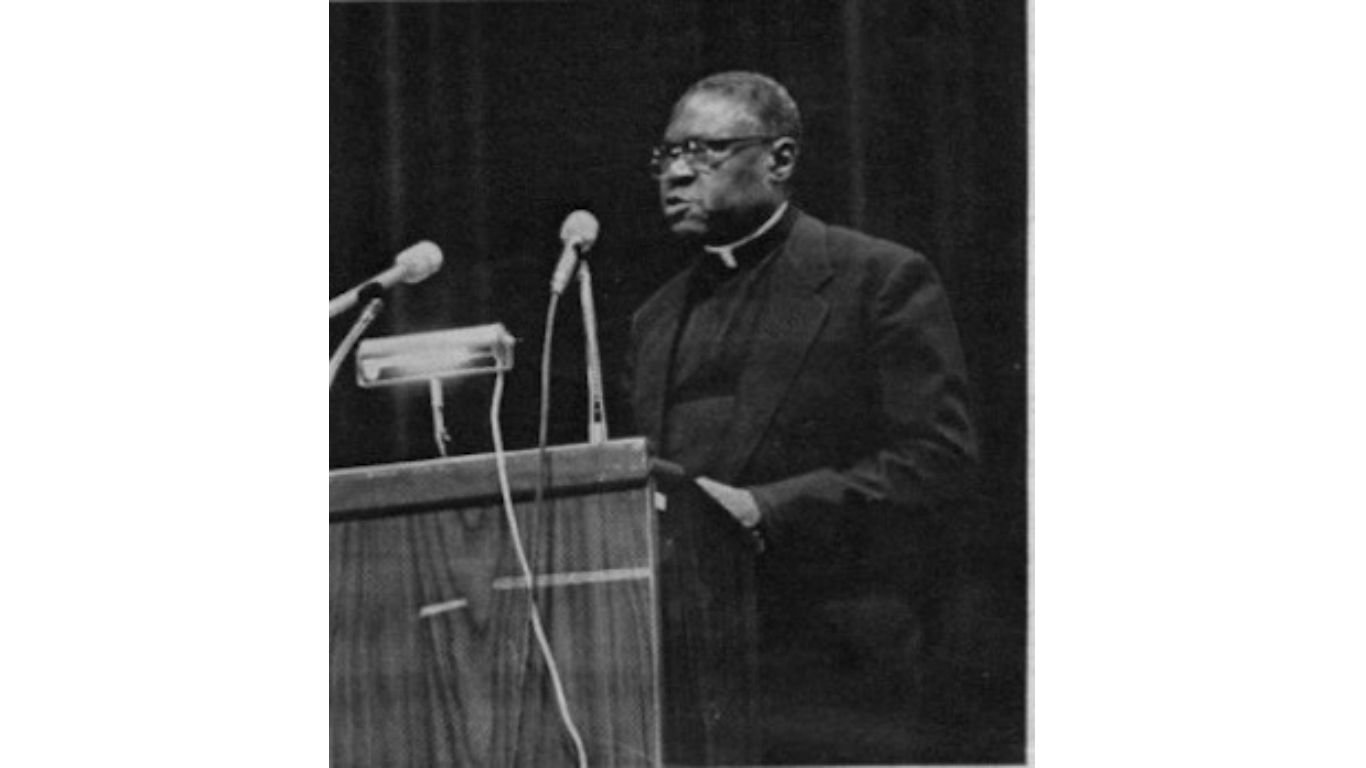
Joseph Jackson: ‘The vote is the only effective weapon in civil rights struggle’
> Occupation: Minister
> Place: Detroit, Michigan
> Date: Sept. 19, 1964
Baptist pastor Rev. Joseph Jackson told a gathering at the National Baptist Convention in Detroit in 1964 that getting and using the vote were necessary to bring about racial equality in America.
“Negroes must become registered voters and fight their battles in the polling booth. In the coming campaign we must not allow our prejudices, our hatred for individuals, to lead us into emotional outbursts and disrespect. […] The progress of the race lies not in continued street demonstrations, and the liberation of an oppressed people shall not come by acts of revenge and retaliation but by the constructive use of all available opportunities and a creative expansion of the circumstances of the past into stepping stones to higher things.”
[in-text-ad-2]
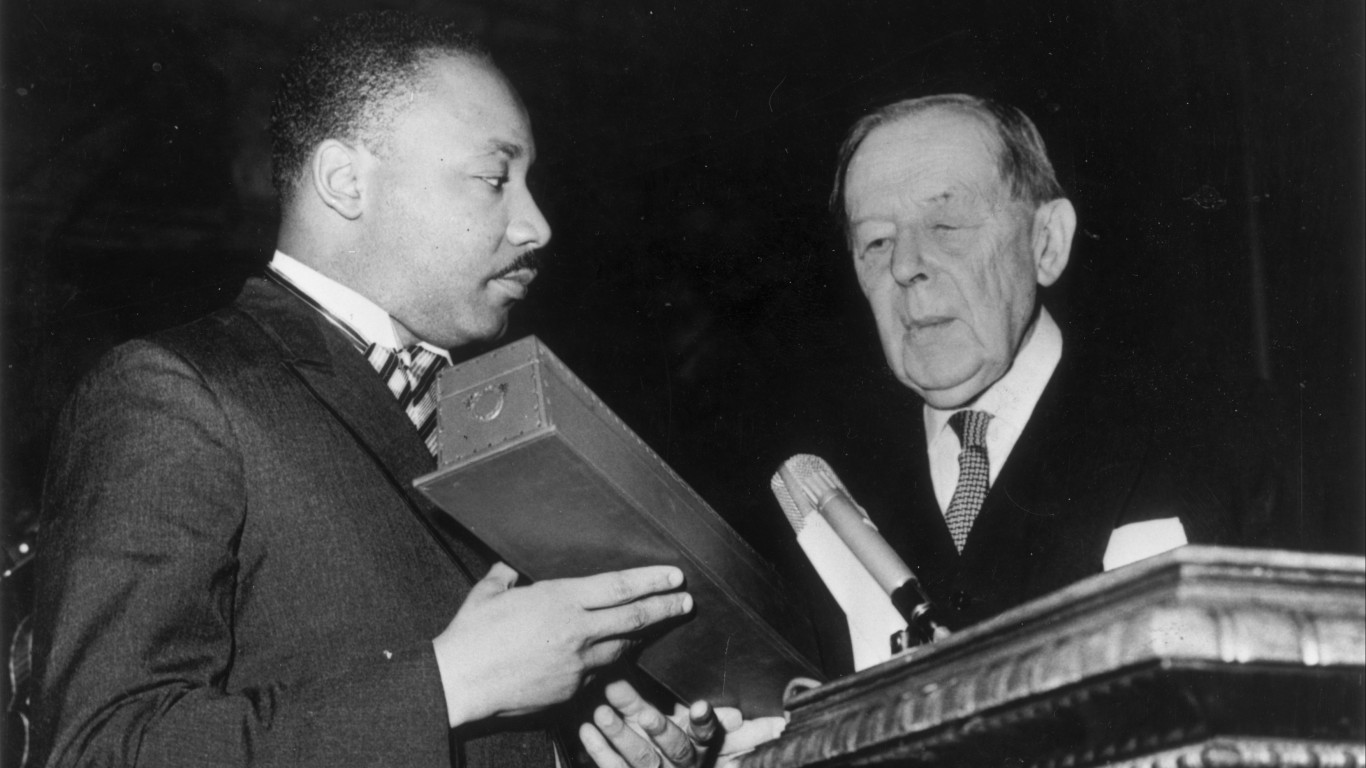
Martin Luther King Jr.: Speech on receiving Nobel Peace Prize
> Occupation: Civil rights leader
> Place: Oslo, Norway
> Date: Dec. 10, 1964
Martin Luther King Jr., in 1964, became the second African-American to win the Nobel Peace Prize. Receiving the prestigious honor gave him pause.
“I must ask why this prize is awarded to a movement which is beleaguered and committed to unrelenting struggle; to a movement which has not won the very peace and brotherhood which is the essence of the Nobel Prize. After contemplation, I conclude that this award which I receive on behalf of that movement is a profound recognition that nonviolence is the answer to the crucial political and moral question of our time – the need for man to overcome oppression and violence without resorting to violence and oppression.”
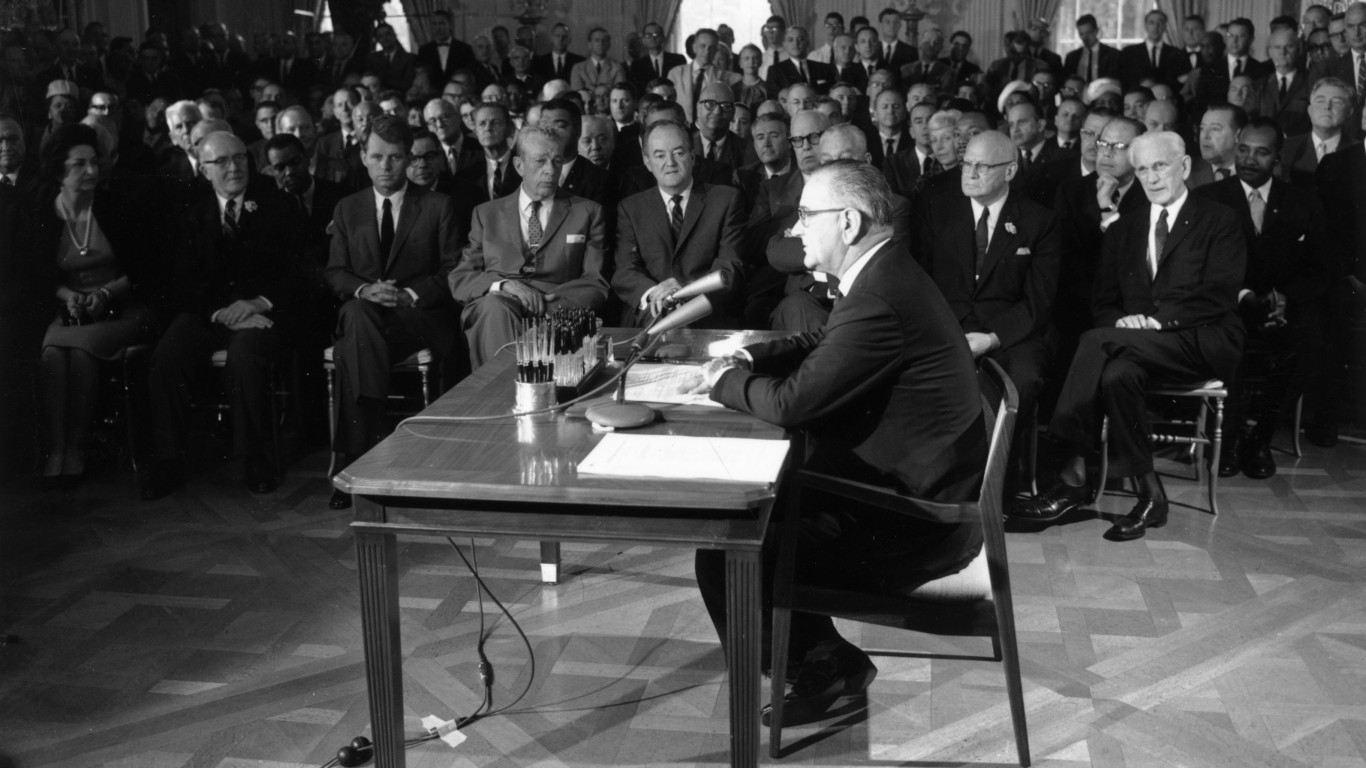
Lyndon B. Johnson: ‘And we shall overcome’
> Occupation: President
> Place: Washington, D.C.
> Date: March 15, 1965
President Lyndon B. Johnson used a televised speech to advocate for a strong voting rights act, following the attack of state troopers on people on marching for voting rights in Selma, Alabama. Johnson, a southerner, had helped pass the Civil Rights Act of 1964. That act outlawed discrimination in the workplace and public accommodations based on race, religion, national origin, or sex. In his speech before a join session of the House, Johnson framed civil rights as a moral issue and invoked the slogan of the movement.
“What happened in Selma is part of a far larger movement which reaches into every section and State of America. It is the effort of American Negroes to secure for themselves the full blessings of American life.
Their cause must be our cause too. Because it is not just Negroes, but really it is all of us, who must overcome the crippling legacy of bigotry and injustice. And we shall overcome.”
[in-text-ad]
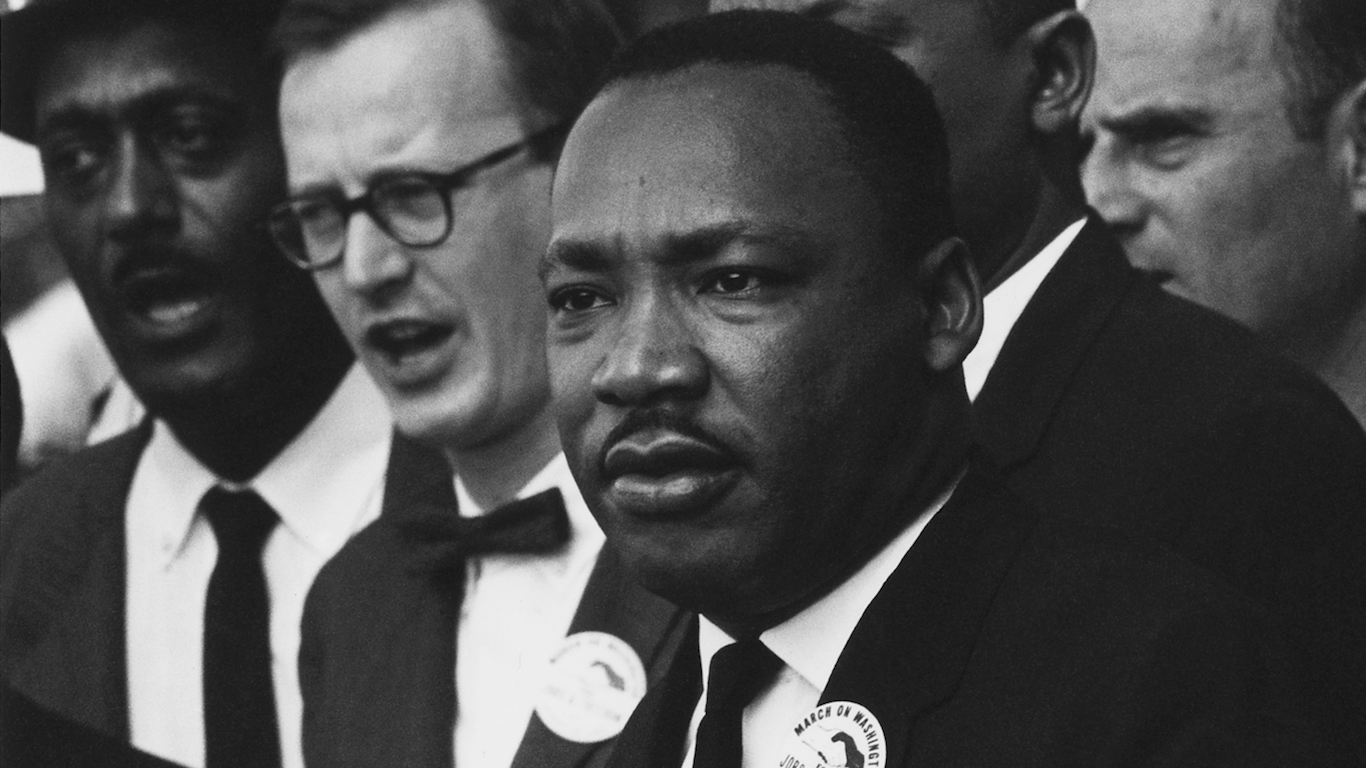
Martin Luther King Jr.: ‘I’ve been to the mountaintop’
> Occupation: Civil rights leader
> Place: Memphis, Tennessee
> Date: Apr. 3, 1968
Martin Luther King Jr. made his last speech at Bishop Charles Mason Temple Church of God in Memphis the night before he was assassinated. He was in the Tennessee city to express his solidarity for sanitation workers striking for higher pay. King always lived with the threat of assassination, and he talked about it privately and alluded to it in many of his speeches.
“We’ve got some difficult days ahead. But it really doesn’t matter with me now. Because I’ve been to the mountaintop. And I don’t mind. Like anybody, I would like to live a long life. Longevity has its place. But I’m not concerned about that now. I just want to do God’s will. And He’s allowed me to go up to the mountain. And I’ve looked over. And I’ve seen the promised land. I may not get there with you. But I want you to know tonight, that we, as a people, will get to the promised land! So I’m happy, tonight. I’m not worried about anything. I’m not fearing any man. Mine eyes have seen the glory of the coming of the Lord!”
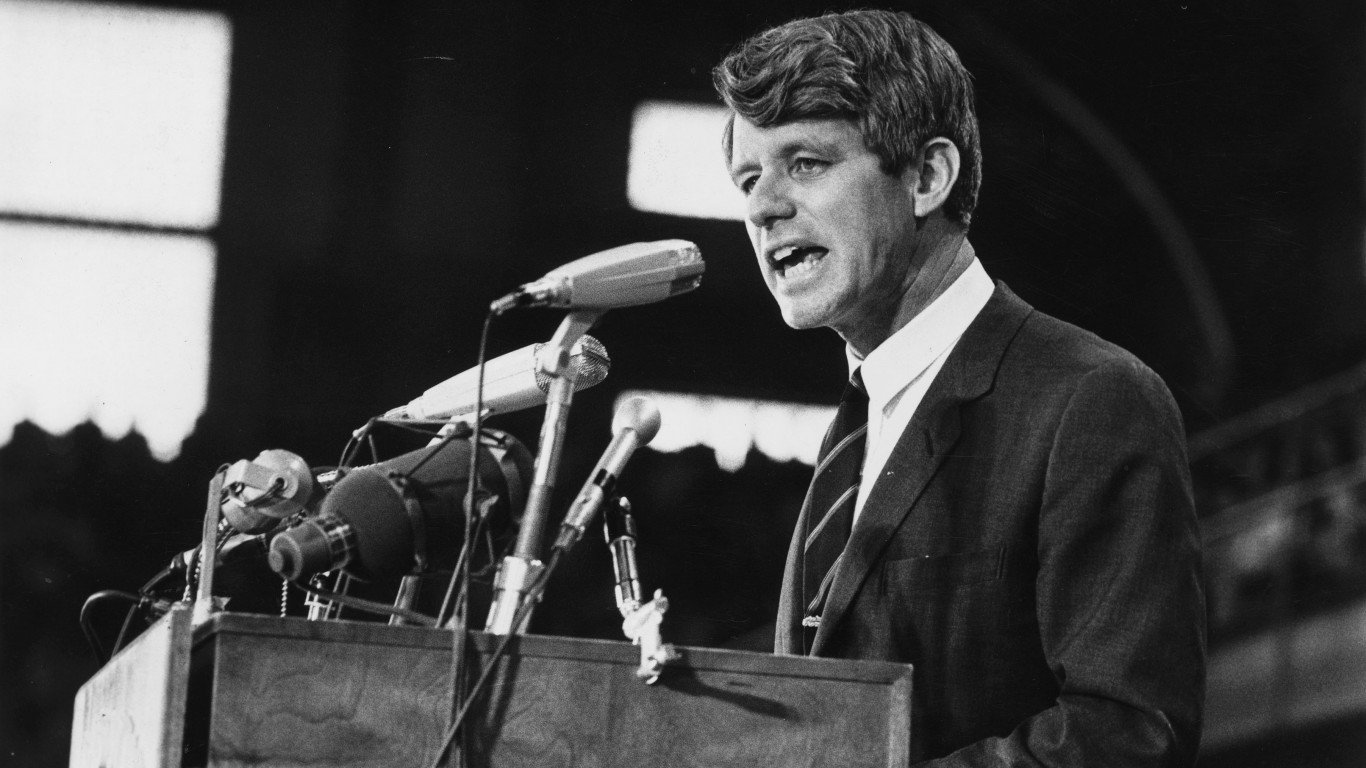
Robert F. Kennedy: Statement announcing death of Martin Luther King Jr.
> Occupation: Politician
> Place: Indianapolis, Indiana
> Date: April 4, 1968
Robert F. Kennedy, campaigning for president, broke the news of King’s assassination to a crowd in Indianapolis, Indiana. Kennedy, whose brother was slain by an assassin less than five years before, offered a unique and personal perspective on the death of King.
“For those of you who are black and are tempted to be filled with hatred and distrust at the injustice of such an act, against all white people, I can only say that I feel in my own heart the same kind of feeling. I had a member of my family killed, but he was killed by a white man. But we have to make an effort in the United States, we have to make an effort to understand, to go beyond these rather difficult times.
What we need in the United States is not division; what we need in the United States is not hatred; what we need in the United States is not violence or lawlessness; but love and wisdom, and compassion toward one another, and a feeling of justice toward those who still suffer within our country, whether they be white or they be black.”
Vernon Jordan Jr.: National Press Club speech
> Occupation: Civil rights activist/businessman/lawyer
> Place: Washington, D.C.
> Date: Feb. 14, 1978
Vernon Jordan, a businessman and president of the National Urban League, believed the African Americans needed to become more involved in the business community. Even so, at National Press Club luncheon in 1978, Jordan criticized a proposed tax cut that he said would hurt the urban poor.
“The National Urban League opposes the tax cut because it would not solve the problems of minorities. There is little evidence to conclude that the job-stimulation effect of the tax cut would trickle down to minorities. . . . There are those who believe in John Kennedy’s phrase that a rising tide lifts all boats, but we must remind them that a rising tide lifts only those boats in the water, and black people are in the dry dock of this economy. Rather than scatter $25 billion to the winds, we want that money, or a large part of it, used to create jobs directly, either in public service employment, in public works, or in creative incentives to private industry to hire and train the unemployed. A broad tax cut would not only defeat our goal of lowering black unemployment, but would create a large deficit that would, in itself, become the excuse for not undertaking urban programs the nation needs.”
[in-text-ad-2]
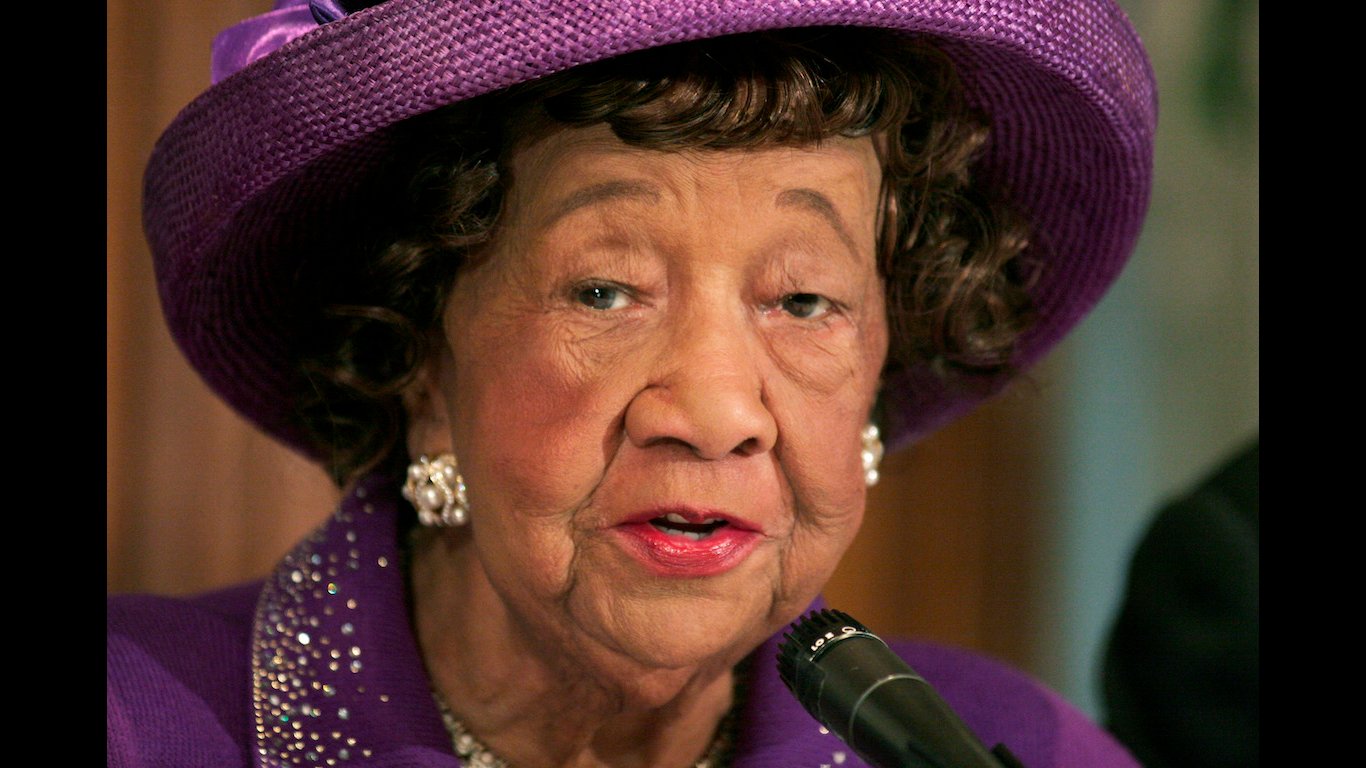
Dorothy Height: Speech at Scholarly Conference on Black Women
> Occupation: Civil rights/women’s rights activist
> Place: Washington, D.C.
> Date: Nov. 13, 1979
Civil rights activist Dorothy Height noted the contributions African-American women made to the civil rights movement in a speech at the Scholarly Conference on Black Women in 1979.
“We began to build bridges of understanding between black and white women in the South and black and white women in communities across the country. We asked them a question: ‘Does it help you or does it hinder you to have a national organization come in?’ And, the women, Clarice Harvey, speaking for one group of women said, ‘We’re from Jackson, Miss. We are black and white women. We are seeing each other here and knowing each other for the first time. But we know one thing, we will never be apart again.’ And then she said, ‘Don’t give up. A national organization is like a long-handled spoon: you can come in and stir us up and get us moving.'”
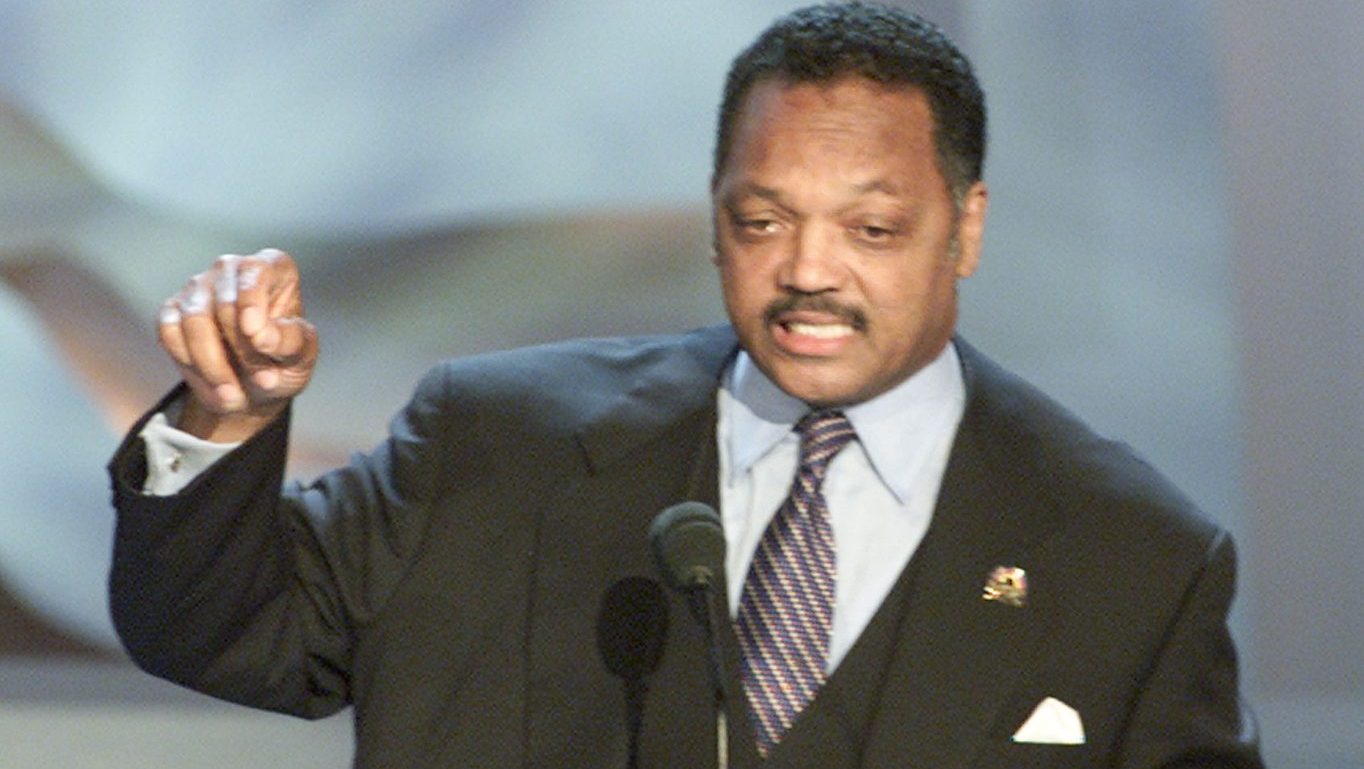
Jesse Jackson: ‘Keep hope alive’
> Occupation: Civil rights activist
> Place: Atlanta, Georgia
> Date: Jul. 19, 1988
Jesse Jackson, who sought the Democratic Party’s nomination in 1988, gave a key address on July 19, 1988, that became known as the “Keep Hope Alive” speech, which helped define his career.
“I was born in the slum, but the slum was not born in me. And it wasn’t born in you, and you can make it.
Wherever you are tonight, you can make it. Hold your head high; stick your chest out. You can make it. It gets dark sometimes, but the morning comes. Don’t you surrender!
Suffering breeds character, character breeds faith. In the end faith will not disappoint.
You must not surrender! You may or may not get there but just know that you’re qualified! And you hold on, and hold out! We must never surrender!! America will get better and better.
Keep hope alive. Keep hope alive! Keep hope alive! On tomorrow night and beyond, keep hope alive!”
[in-text-ad]
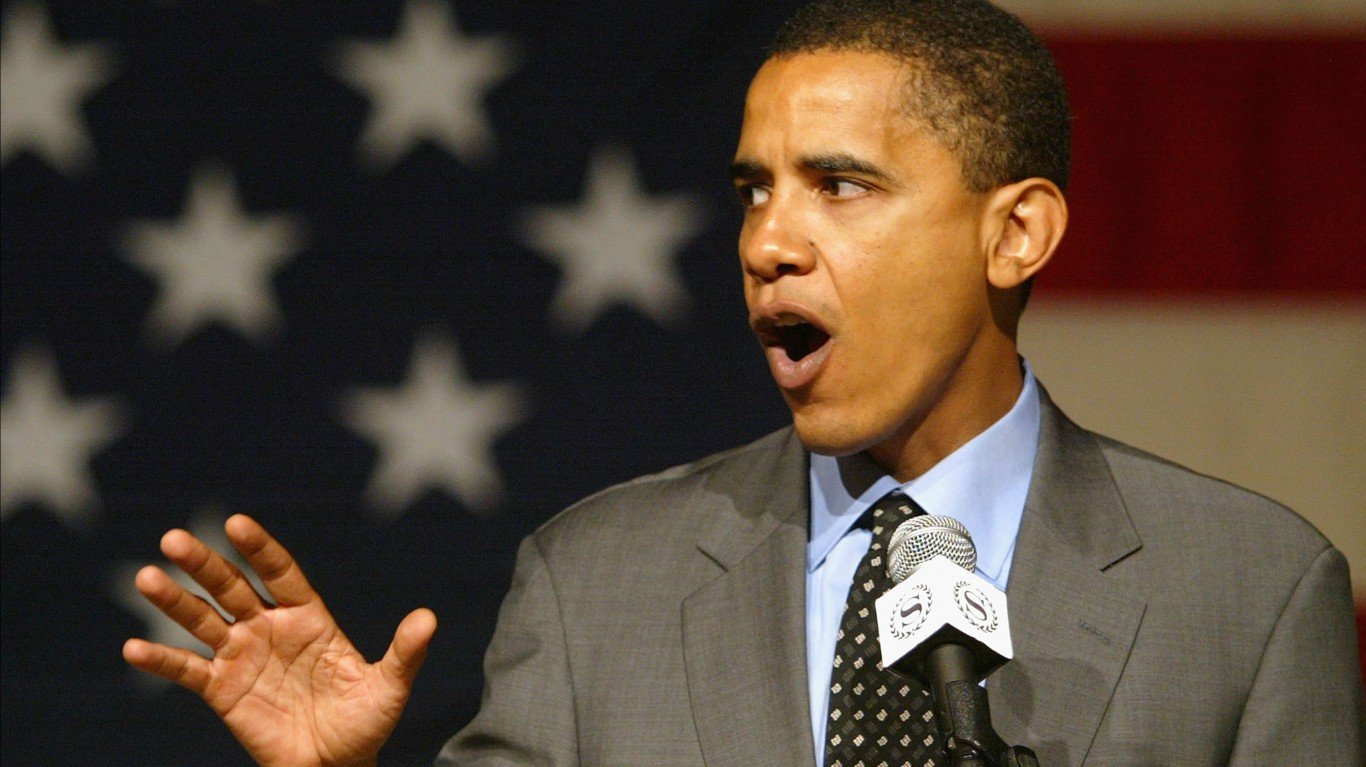
Barack Obama: Speech at Democratic National Convention
> Occupation: Senator
> Place: Boston, Massachusetts
> Date: July 27, 2004
Just three months after being elected senator from Illinois, Barack Obama became a household name with his stirring keynote speech at the 2004 Democratic National Convention. He introduced himself to the country, sharing his unique story. The speech embraced the ideals that all Americans, no matter their race, background, or heritage, should be equal.
“My parents shared not only an improbable love; they shared an abiding faith in the possibilities of this nation. They would give me an African name, Barack, or ‘blessed,’ believing that in a tolerant America your name is no barrier to success. They imagined me going to the best schools in the land, even though they weren’t rich, because in a generous America you don’t have to be rich to achieve your potential.
They are both passed away now. And yet, I know that, on this night, they look down on me with great pride.
They stand here, and I stand here today, grateful for the diversity of my heritage, aware that my parents’ dreams live on in my two precious daughters. I stand here knowing that my story is part of the larger American story, that I owe a debt to all of those who came before me, and that, in no other country on Earth is my story even possible.”
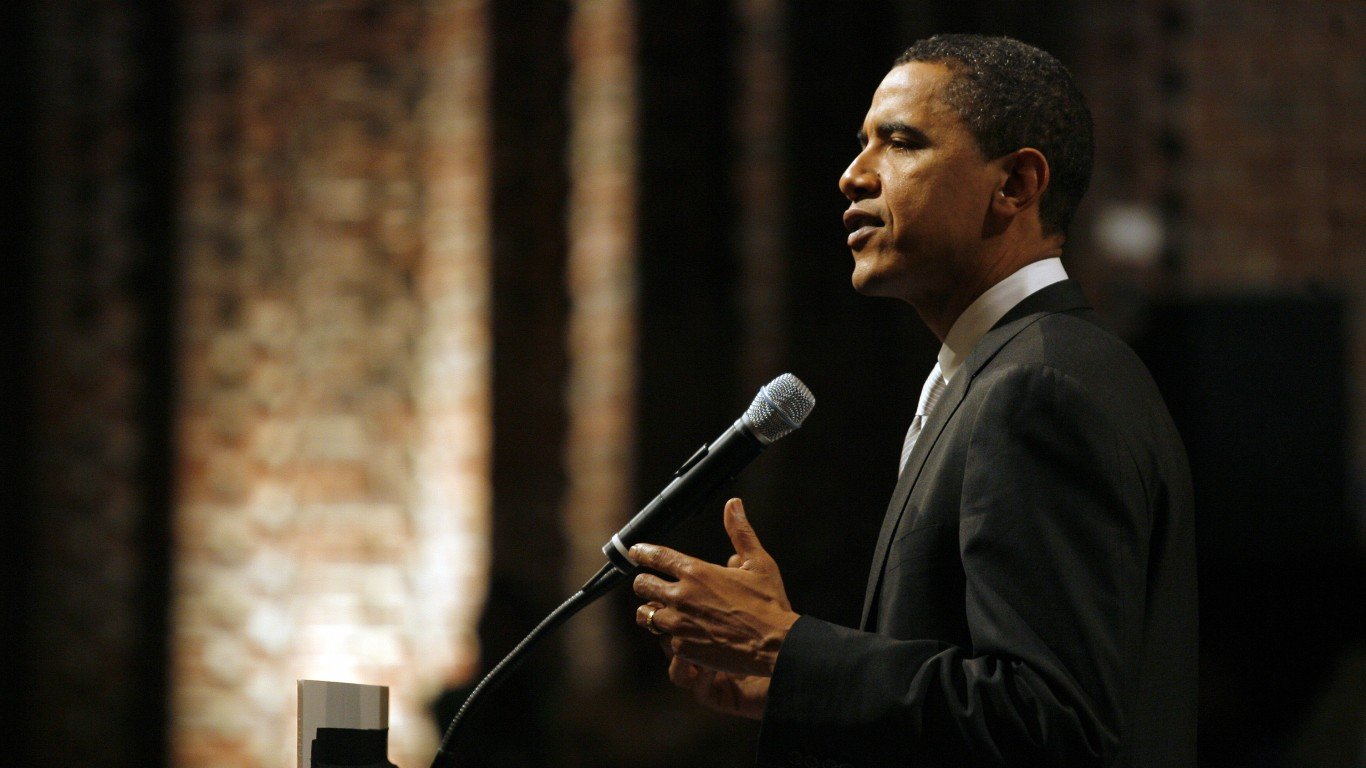
Barack Obama: ‘A more perfect union’
> Occupation: Senator
> Place: Philadelphia, Pennsylvania
> Date: March 18, 2008
During the early stages of the Democratic primary of the 2008 presidential election, Obama cemented his status as a world-class orator, delivering a powerful speech on how much progress America had made — and how much further it still has to go.
“[The constitution] they produced was eventually signed but ultimately unfinished. It was stained by this nation’s original sin of slavery, a question that divided the colonies and brought the convention to a stalemate until the founders chose to allow the slave trade to continue for at least twenty more years, and to leave any final resolution to future generations.
Of course, the answer to the slavery question was already embedded within our Constitution – a Constitution that had at is very core the ideal of equal citizenship under the law; a Constitution that promised its people liberty, and justice, and a union that could be and should be perfected over time.”
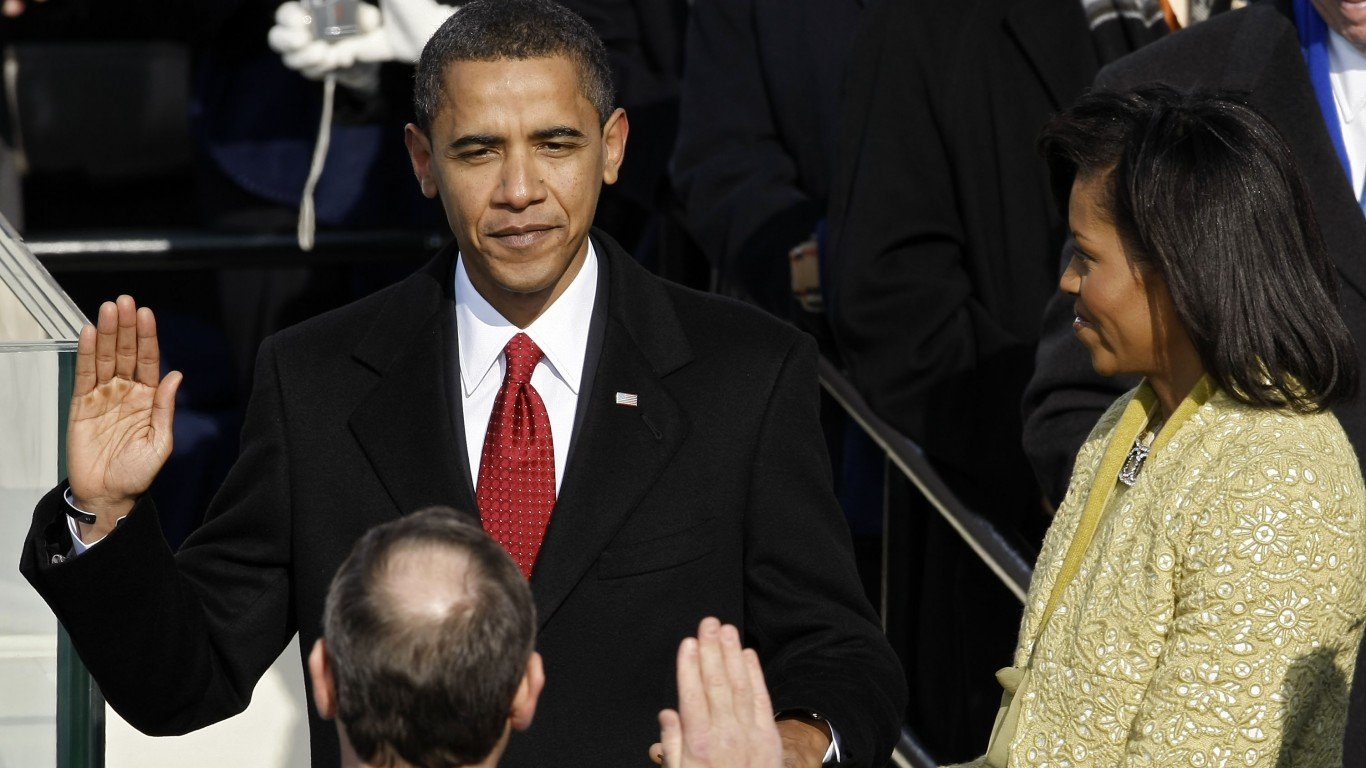
Barack Obama: Inaugural address
> Occupation: President
> Place: Washington, D.C.
> Date: January 20, 2009
President Barack Obama became the first person of color to hold the highest office in the land. His election marked a momentous occasion, one many had hoped for but few believed they would live to see. In his first address as commander in chief, Obama struck an optimistic tone for the future of America and race relations therein.
“For we know that our patchwork heritage is a strength, not a weakness. We are a nation of Christians and Muslims, Jews and Hindus, and non-believers. We are shaped by every language and culture, drawn from every end of this Earth; and because we have tasted the bitter swill of civil war and segregation, and emerged from that dark chapter stronger and more united, we cannot help but believe that the old hatreds shall someday pass; that the lines of tribe shall soon dissolve; that as the world grows smaller, our common humanity shall reveal itself; and that America must play its role in ushering in a new era of peace.”
[in-text-ad-2]
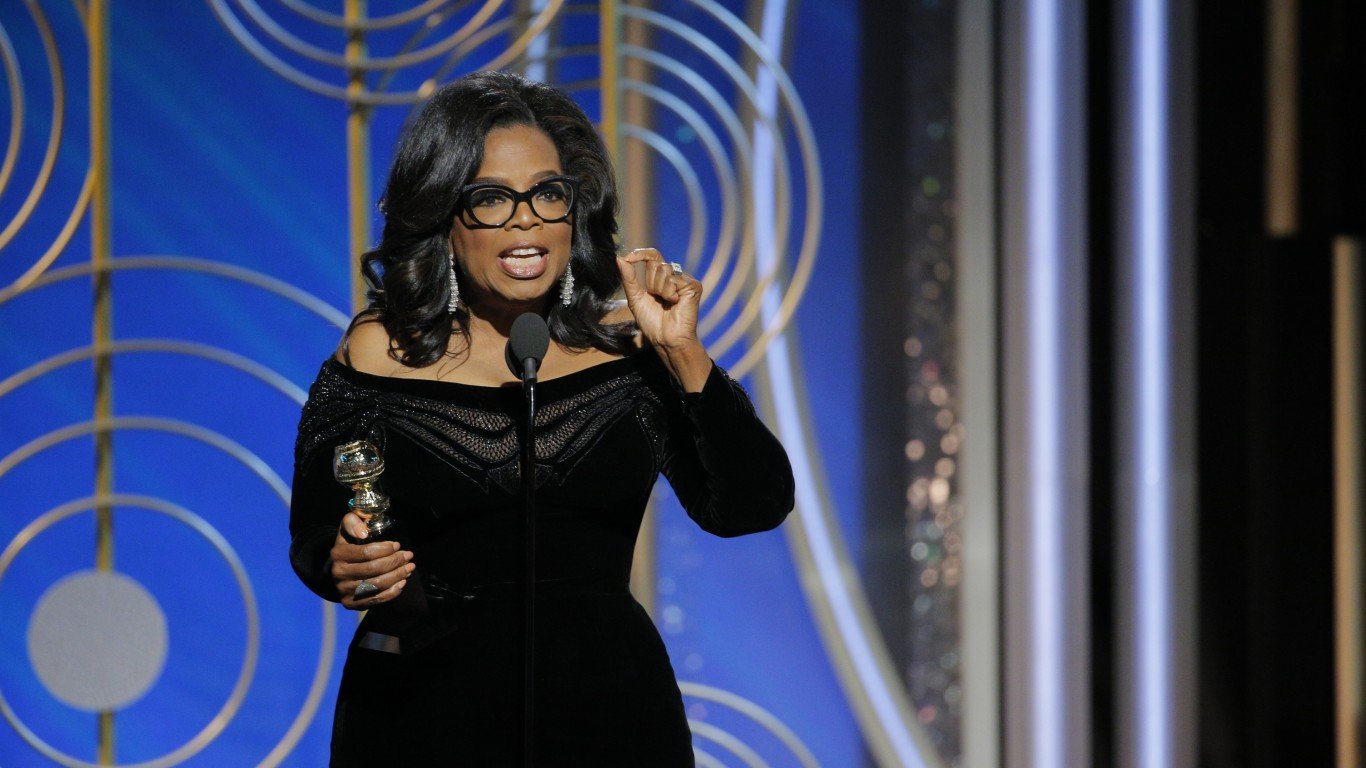
Oprah Winfrey: Golden Globes speech
> Occupation: Entertainer/businesswoman/activist
> Place: Beverly Hills, California
> Date: Jan. 7, 2018
Upon receiving the Cecil B. DeMIlle Award for lifetime achievement in entertainment at the 2018 Golden Globes, Oprah Winfrey gave an impassioned speech highlighting the #MeToo movement and its importance to underprivileged women.
“In my career, what I’ve always tried my best to do, whether on television or through film, is to say something about how men and women really behave: to say how we experience shame, how we love and how we rage, how we fail, how we retreat, persevere, and how we overcome. And I’ve interviewed and portrayed people who’ve withstood some of the ugliest things life can throw at you, but the one quality all of them seem to share is an ability to maintain hope for a brighter morning â even during our darkest nights.”
Sponsored: Attention Savvy Investors: Speak to 3 Financial Experts – FREE
Ever wanted an extra set of eyes on an investment you’re considering? Now you can speak with up to 3 financial experts in your area for FREE. By simply
clicking here you can begin to match with financial professionals who can help guide you through the financial decisions you’re making. And the best part? The first conversation with them is free.
Click here to match with up to 3 financial pros who would be excited to help you make financial decisions.
Thank you for reading! Have some feedback for us?
Contact the 24/7 Wall St. editorial team.
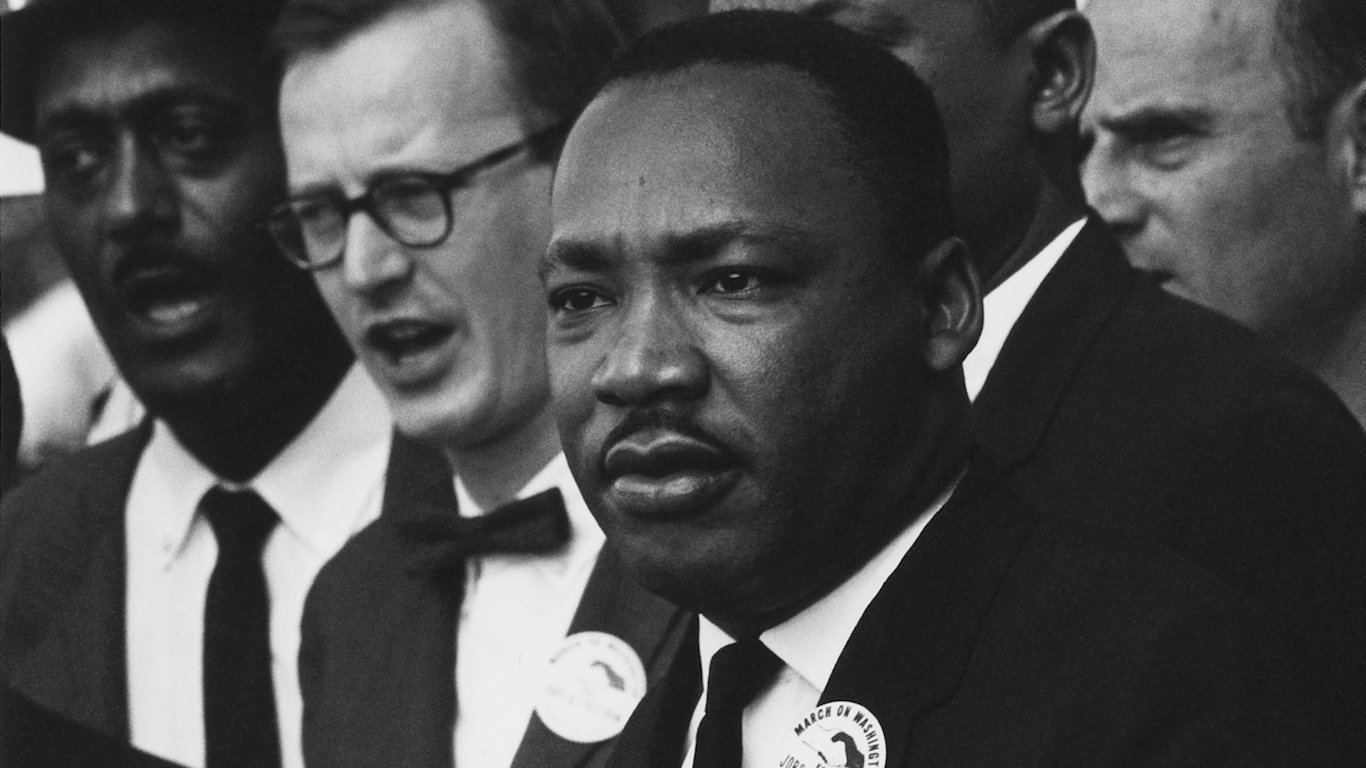 24/7 Wall St.
24/7 Wall St.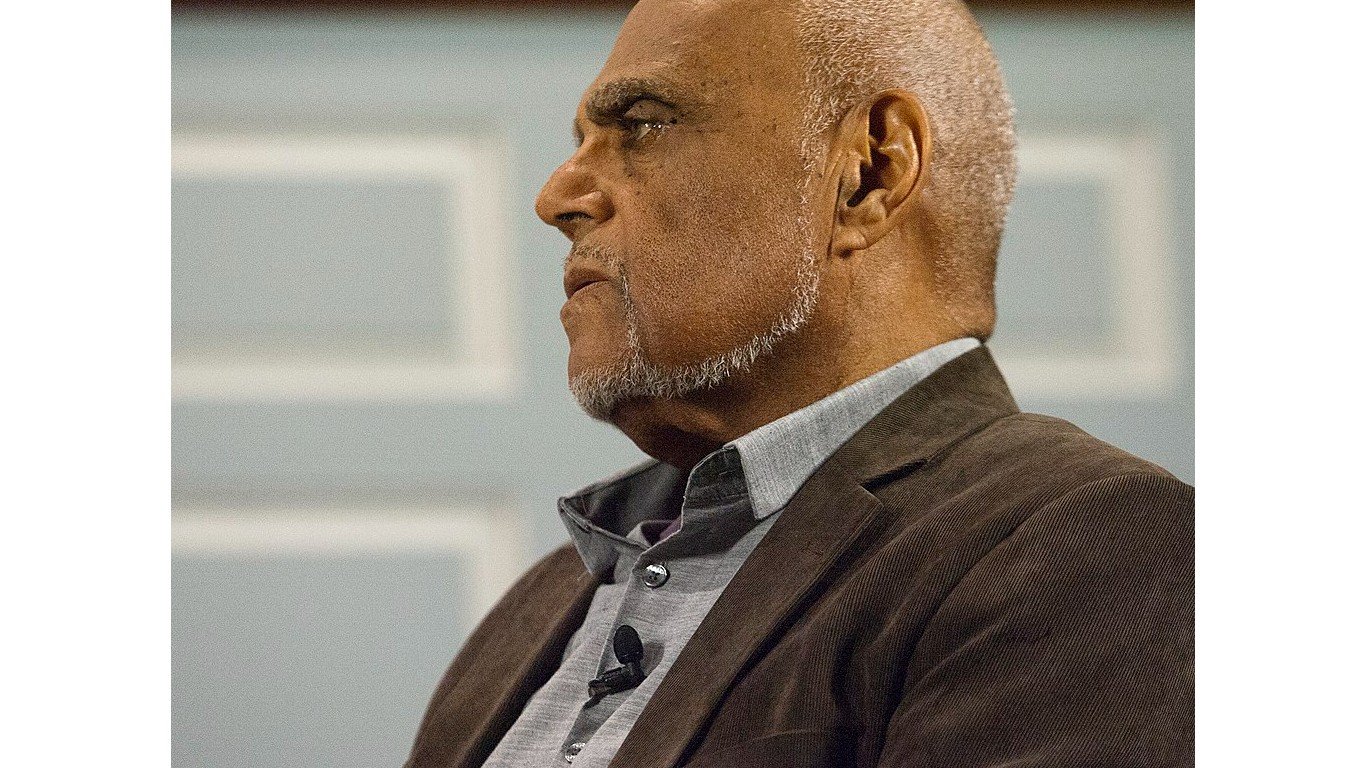
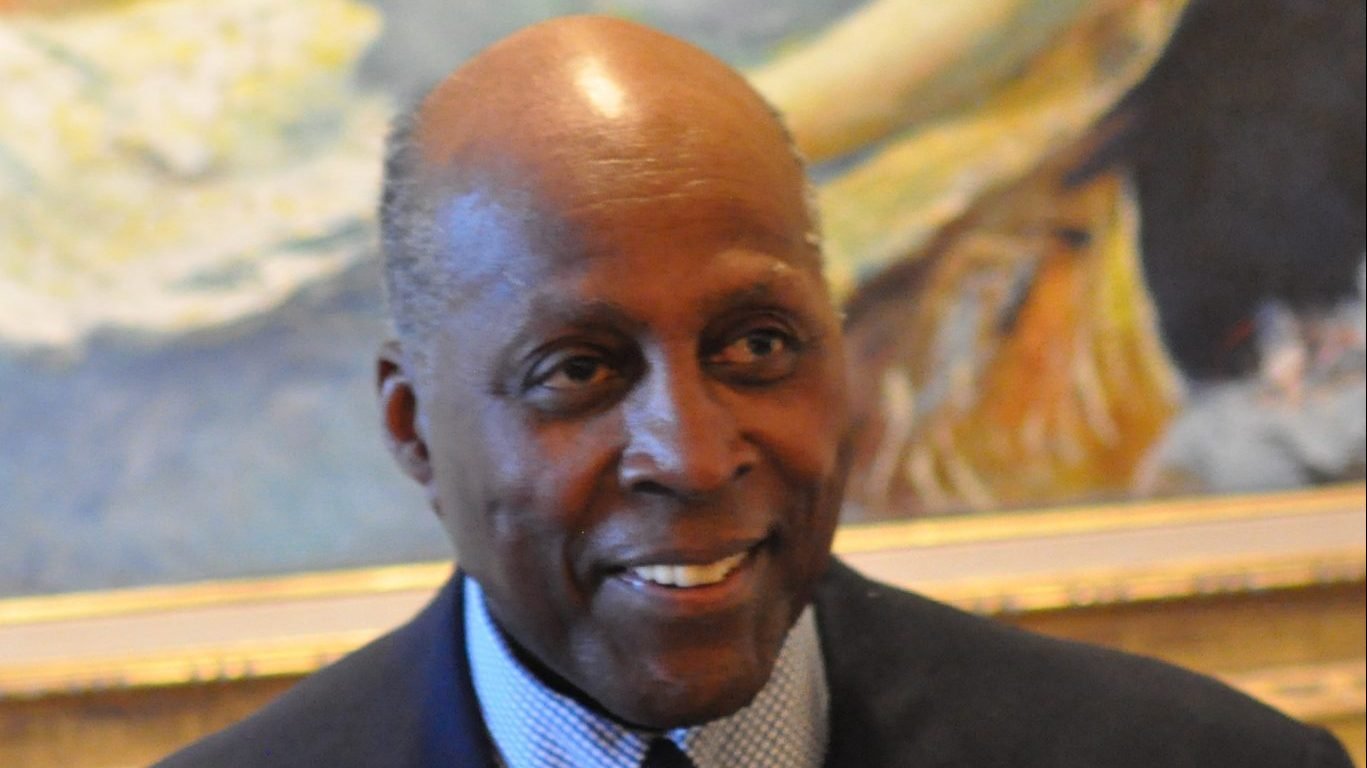
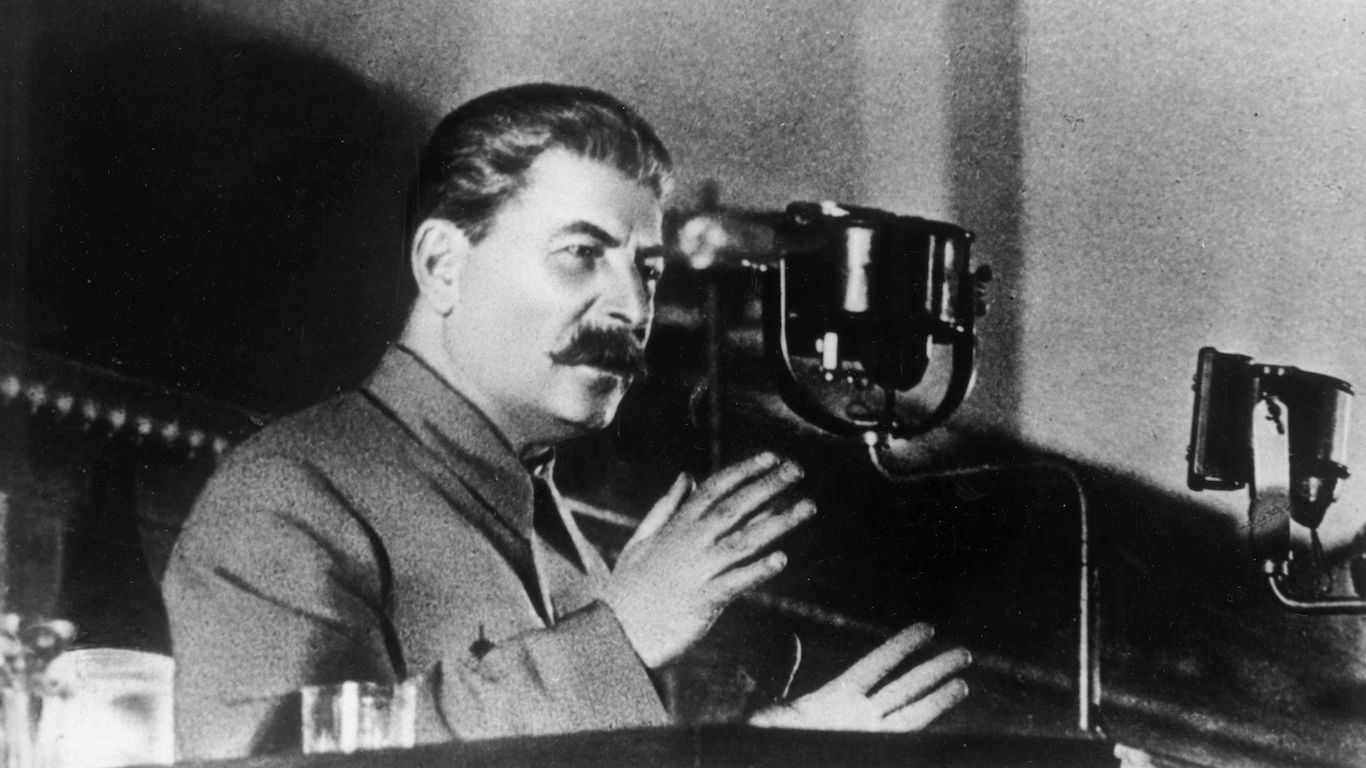 24/7 Wall St.
24/7 Wall St.
